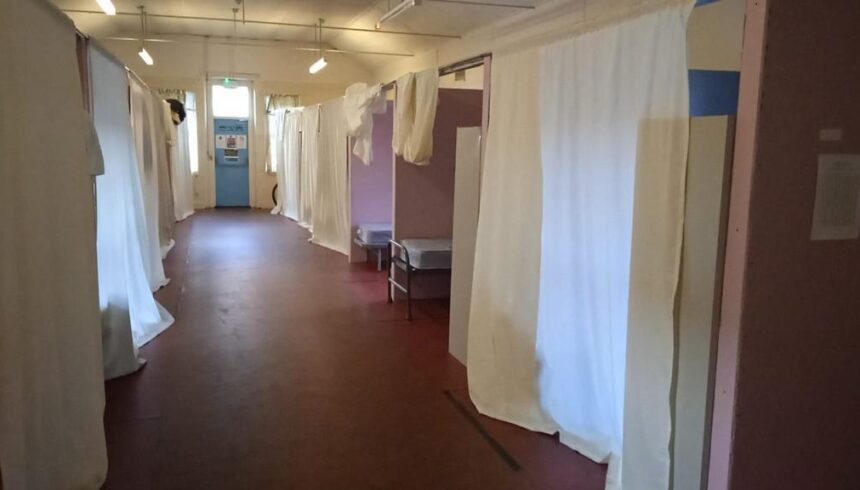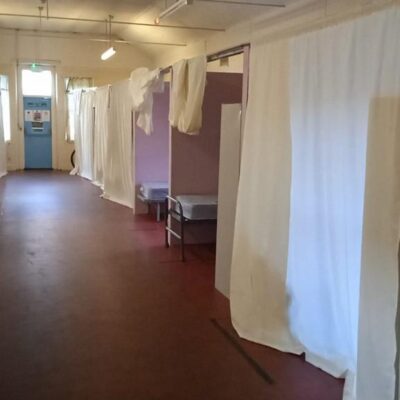JRS UK renews their call for the immediate closure of Napier barracks in Kent, as the High Court today ruled the use of the site unlawful. JRS UK’s detention outreach team continue to support men accommodated at Napier barracks.
JRS UK has found that victims of torture and trafficking are routinely transferred to Napier and that people in Napier tend to suffer rapid and serious deterioration in mental health. Furthermore, the site continues not to be COVID-19 secure.
Director of JRS UK, Sarah Teather said: “The court’s finding against accommodation at Napier barracks is welcome. JRS UK supports people held in quasi-detention in Napier, and their experience is horrendous. People are isolated and struggle to access basic services. Too often, they are cold and hungry.”
Napier barracks is likely to be a blueprint for new reception centres proposed in the government’s ‘New Plan for Immigration’. The judgement today is damning evidence that this form of accommodation is not in any way fit to house vulnerable individuals seeking sanctuary – many of whom have faced torture, trafficking and modern slavery during their journeys to reach the UK – let alone to be a place of reception and welcome.
Sarah continues, “People find it very hard to pursue their asylum claims in this context. More than that, people have told us they don’t feel human while they’re residing at Napier. This ghettoised, detention-like accommodation is unsafe, undignified, and inhumane. It is beyond time to close Napier barracks and ensure that asylum claimants have accommodation within British communities.”
JRS UK’s Detention Outreach team offer practical and pastoral support to men housed in Napier barracks weekly, both within the camp itself and through a drop-in working in partnership with a local church.
One gentleman supported by the JRS team described Napier as, ‘like being in a hospital or prison, there are people rapidly becoming more and more mentally unwell around you, one has just tried to kill himself, another is in pain, another is very stressed and cannot cope…. I did not feel like a person when I was there. I felt I had lost who I was. The way we were treated, it denied us all freedom.’



